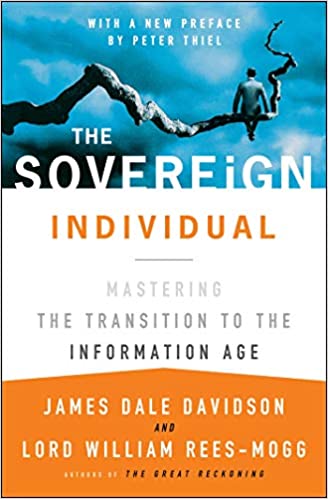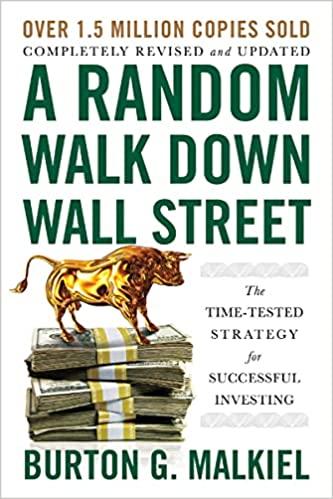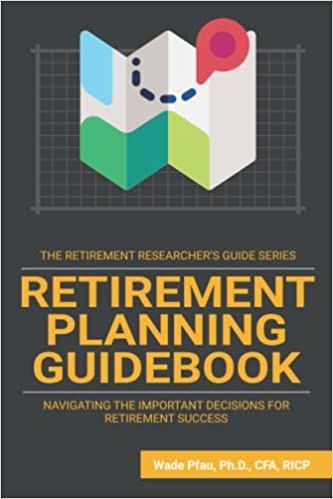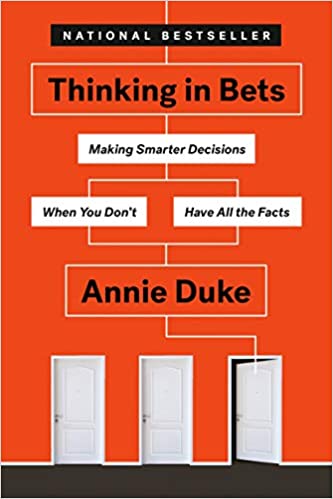The best ways to build wealth for high-earning engineers aren’t any different than building wealth for employees of any other industry.
The key is consistency, choosing the right investments, and constantly looking for ways to earn passive income.
Importance of Wealth-Building for Engineers With High Income
Highly paid engineers often have more money than they know how to handle. Knowing where to invest money to build wealth and reach your financial goals is key.
There isn’t a once-size-fits-all approach to your wealth-building journey; it depends on your financial goals, risk tolerance, and timeline.
Whether saving for retirement, buying a house, or having an emergency fund, wealth-building for engineers is just as important as it is for people in any other industry.
The Best Ways To Build Wealth for High-Earning Engineers
Like people in any industry, there are many ways to achieve financial security. Given your high salary and a standard financial plan, the methods below are the best ways to build wealth.
1. Qualified Retirement Accounts
No discussion about building wealth would be complete without discussing retirement savings. Everyone must have retirement accounts established, whether employer-sponsored or individually owned; however, qualified retirement accounts are the most advantageous.
What Is a Qualified Retirement Account?
Your employer offers qualified retirement savings accounts to support employees and their families during retirement.
There are several options, and the choices you get are those your employer offers. Most employer-sponsored retirement savings plans allow employer and employee contributions to build wealth faster.
Different Types of Qualified Retirement Account
401(k) Plans
These are the most common retirement accounts. You determine the percentage of your paycheck you want to dedicate to your 401(k), and your employer automatically deducts the amount each payday.
Many employers also match your contributions to a certain percentage of your income, usually 1% to 3%.
403(b) Plans
Non-profit schools, hospitals, and charities offer 403(b) plans, which are the equivalent of 401(k) offered in for-profit companies. Employers defer a predetermined percentage of your paycheck to your retirement savings; some may match your contributions to a certain level.
Savings Incentive Match Plan for Employees (SIMPLE) IRAs
Small employers who have less than 100 employees can offer a SIMPLE IRA, which has fewer requirements than a 401(k), making it easier for employers.
Employees can defer a percentage of their income, and employers can match up to 3% of an employee’s contributions (optional).
Employers can also offer a 2% non-elective contribution for each employee, which guarantees employees at least 2% of their pay saved for retirement annually.
Simplified Employee Pension (SEP) IRAs
Employers of any size who want to support their employees during retirement can set up a SEP IRA and contribute up to 25% of each employee’s income.
Employees do not contribute to the pension plan but are 100% vested from day one.
Profit-Sharing Plans
Employers willing to share some of their profits may add a profit-sharing plan to their retirement offerings. Contributions to a profit-sharing plan are from the employer only, and they are voluntary (not required), so don’t rely on them as your only wealth-building strategy.
Benefits of Contributing to a Retirement Account
Saving for retirement may seem unnecessary if you’re beginning your career, but that’s the best time to start saving money.
Whether or not you’re lucky enough to have an employer-sponsored retirement plan with employer contributions, saving allows the funds to grow, helping you build long-term wealth.
Many retirement accounts also have tax advantages. For example, a traditional 401(k) allows you to defer a percentage of your income for retirement.
This means you don’t pay taxes when you earn the income. Instead, you pay taxes when you withdraw the funds during retirement.
The goal is to be in a lower tax bracket during retirement to reduce the tax burden and keep more money in your pocket.
Strategies To Maximize Contributions and Tax Advantages
Depending on your employer, you may have various retirement account options. Most offer a 401(k) or 403(b), but smaller employers may have other options. No matter the type of account, here are some strategies to save as much money as possible.
Contribute at Least the Employer Match
Determine how much your employer will match and contribute at least that much. This ensures you get the ‘free money’ offered by your employer just for setting money aside for retirement.
Watch Tax Requirements
Determine when you want to save money on taxes and choose your retirement account accordingly. For example, if you want to reduce your tax liabilities now, you could contribute to a traditional 401(k).
However, if you’d rather have tax advantages during retirement, consider a Roth 401(k). Roth accounts have after-tax contributions, but all withdrawals (after retirement) are tax-free.
Increase Contributions When Income Rises
Each time you get a raise, increase your preset contributions to account for the higher income.
Pros and Cons
Pros
- Potential employer match.
- Potential tax advantages.
- Automated savings to build wealth.
Cons
- Limited investing options.
- May face vesting schedules.
2. Taxable Brokerage Accounts
After exhausting your employer-sponsored accounts to get an employer match or once you’ve reached the maximum contributions allowed for your account, taxable brokerage accounts are another option.
What Is a Taxable Brokerage Account?
You can own a taxable brokerage account yourself or jointly with a spouse. They are taxable because there aren’t any tax advantages like retirement accounts, so it’s important to watch your tax liabilities from capital gains.
What Can You Do With a Taxable Brokerage Account?
Taxable brokerage accounts allow investments of all types, including stocks, bonds, crypto, forex, and alternative investments.
Each broker offers different investment options, so determine what they offer before choosing a brokerage while also considering the fees they charge.
Benefits of Taxable Brokerage Accounts
Even though taxable brokerage accounts don’t have tax benefits, there are other ways to benefit, including:
- Easily accessible: Unlike retirement accounts, you can withdraw funds from taxable investments whenever you want. Be sure you understand the tax consequences or potential losses when selling an investment, but you won’t pay any penalties for cashing in on an investment.
- Diversified portfolio: Retirement accounts only allow options the company offers, which can be limiting. When you choose your own broker, you have more options in the types of investments you choose.
- Tax loss harvesting: When saving and investing, you can use tax loss harvesting strategies, which means when you sell an asset for profit, you also sell off an investment that’s losing. The losses offset the gains, reducing the taxes owed.
- More control: You have much more control over taxable accounts versus retirement accounts. You don’t have to follow maximum contribution allowances or minimum distribution requirements. You can also buy and sell investments much easier.
Different Investment Options Within Brokerage Accounts
- Stocks: Investing in individual companies allows you to earn some of their profits when they do well and experience losses with them when they don’t. The stock market is volatile, but if you stick with it long-term, it usually has a 10%+ rate of return.
- Bonds: If you want a more conservative investment, government bonds are a great way to build wealth. The interest rate paid on government bonds is much lower than the stock market’s rate of return, but diversifying your portfolio with conservative investments is important.
- Mutual Funds: If you prefer to invest with others, you can pool your money with hundreds of other investors. This allows the mutual fund manager to purchase stocks, bonds, and alternative investments for each investor to own a fractional portion for investing.
- Exchange-Traded Funds (ETFs): A less risky way to build wealth with a pool of other investors is ETFs. You pay an ETF manager to invest your funds in a basket of securities that tracks a specific market, most commonly the S&P 500. ETFs are passively managed, so the fees are much lower than mutual fund shares.
Tips on Managing Taxable Brokerage Accounts Effectively
You can manage your taxable brokerage account yourself using a professional advisor or a robo-advisor (aka computer) to manage it for you.
When managing your account, consider these tips:
- Focus long-term: Don’t get caught up in the emotions of investing. When you invest in an asset, leave the funds for a long period to realize its true rate of return.
- Find passive income investments: Look for investments that offer passive income, such as dividend stocks. If you reinvest the dividends earned, your earnings grow faster.
- Diversify: Keep a diversified portfolio with ‘risky’ investments, such as those in the stock market, less volatile investments, such as bonds, and even put money in deposit accounts to earn compound interest.
Pros and Cons
Pros
- More options for investing.
- Complete control over your accounts.
- Ways to get around tax burdens.
Cons
- Can face higher fees if not sure how to manage accounts.
- Easier to make emotional decisions and lose money.
3. Real Estate Investment
Real estate is one of the best ways to build wealth. You don’t need to be rich to do it, either. You have options if you’d rather invest only a small portion of your income in real estate.
Advantages of Real Estate as an Investment Option
Real estate is sometimes a hedge against inflation and works opposite the stock market.
You don’t have to worry about the performance of individual companies but, instead, the real estate market as a whole. You can buy real estate outright or invest with other investors, owning a percentage of residential or commercial properties.
Different Types of Real Estate Investments
- Residential Real Estate: Invest in single-family homes, condos, or townhomes, renting them to tenants and acting as a landlord. You can also purchase residential properties to fix and flip, selling them for a profit after renovating rundown properties.
- Commercial/Industrial Real Estate: High-earning individuals may be able to afford commercial or industrial properties. Buying properties and renting them out is a great source of passive income and helps diversify your wealth-building strategies.
- Real Estate Investment Trusts (REITs): If you’d rather not own real estate yourself, REITs are investments in real estate trust companies that purchase commercial real estate and sell shares of their assets to investors. You earn a prorated amount of the earned income from rent plus money from the capital gains.
- Real Estate Crowdfunding: You can also choose properties to invest in yourself by joining a real estate crowdfunding platform. You pool funds with other investors, either owning a property’s equity or providing the loan (debt).
Factors To Consider When Investing in Real Estate
Investing in real estate has its risks, of course. As we’ve all seen, the market isn’t predictable, so there is a chance of loss.
The key is to understand the market, research the locations, and determine the best areas to achieve your real estate goals. This includes buying and holding to rent to tenants, fixing and selling, or purchasing commercial property.
Pros and Cons
Pros
- Not tied to the stock market.
- Great hedge against inflation.
- Can leverage investment with financing.
Cons
- You can’t predict how the market will perform.
- It can require large investments.
Is It Possible To Combine Multiple Methods for Optimal Wealth-Building?
The best way to build wealth means mixing and matching your wealth-building plan. Sticking to one opportunity puts all your eggs in one basket.
Instead, you must diversify to set up a solid foundation, which means putting your money in various investments.
This will make a big difference if and when the markets take a nosedive. If you have all your money in one investment, you lose everything.
However, if you diversify your investments, you may offset some losses with gains in other areas.
When Should I Consider Consulting a Certified Financial Planner for Wealth-Building Advice?
When creating a wealth-building strategy, consulting a certified financial planner is always a good idea. Financial experts can ensure you choose the right ways to grow your wealth.
You may learn about opportunities you didn’t know existed or learn how to diversify your portfolio best to maximize earnings and minimize tax liabilities.
FAQs
When Is the Right Time To Start Investing as an Engineer for Accumulating Wealth?
Engineers should start investing as soon as possible. The younger you are when you invest, the more time the money has to grow.
Even if you think you don’t have much net worth right now, it will grow, but you must take that first step.
What Is the Fastest Way To Build Wealth for High-Earning Engineers?
There isn’t a one-size-fits-all approach to building wealth for high-earning engineers. The key is to choose a method that fits your risk tolerance and helps you meet your financial goals.
For some, this may mean aggressively investing in the stock market; for others, it may mean more conservative investments in bonds and deposit accounts.
How Can High-Earning Engineers Balance Risk and Reward in Their Wealth-Building Approach?
Diversification is the key to balancing risk and reward. You need aggressive and conservative investments for higher earnings to offset the risk.
So even though the interest rate paid by a high-yield savings account may not sound like much, it’s a ‘sure thing’ and can offset the riskier stock market investments.
Can I Achieve Financial Independence Through Wealth-Building as a High-Earning Engineer?
It is possible to achieve financial independence by wealth building.
The key is to get out of high-interest debt and create a budget that meets your basic needs while allowing you to save and invest enough money to reach your financial goals.
The Bottom Line
Knowing the best ways to build wealth as a high-earning engineer is the first step to reaching your financial goals.
Next is putting it all together, which is best done with a financial expert. If you’re ready to turn your financial life around and build wealth, contact us for your Free consultation today.












